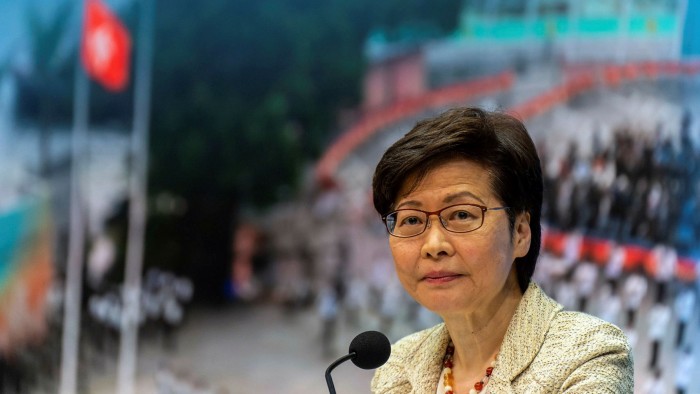Hong Kong set to allow corporate directors to obscure their identity

Roula Khalaf, Editor of the FT, selects her favourite stories in this weekly newsletter.
Hong Kong risks facilitating fraud and undermining its status as a transparent financial hub after authorities unveiled proposals that would allow company directors to obscure their identities, according to corporate governance experts and investors.
Under the proposed rules, the Hong Kong government would not require companies to reveal home addresses, passport or identification numbers of their directors on public registers. Without this information, directors could use different versions of their name in different languages on a range of documents and entities.
Companies can start implementing the changes immediately and the law will come into full effect by October 2022.
The proposals come as Hong Kong’s status as Asia’s premier financial centre has already been under pressure, despite the city’s equity markets booming in recent months with Chinese companies rushing to list.
The economy fell into recession following anti-government protests in 2019 and the coronavirus pandemic. The national security law Chinese authorities imposed last year in response to the protests has created further uncertainty for international companies.
Carrie Lam, Hong Kong’s chief executive, said the proposal would prevent “doxing”, whereby the personal details of individuals are exposed online. Pro-Beijing groups have accused anti-government activists of using such tactics to attack authorities.
But corporate governance experts and accountants sharply criticised the proposals.
“It’s a very dark day for Hong Kong,” said Jane Moir, research director for Hong Kong at the Asian Corporate Governance Association, adding it would affect investors and banks attempting to conduct due diligence on a transaction or business partner.
“You are not going to have a definitive answer on whether a particular person is definitely the director of a certain company . . . you are going in half-blind,” she said.
Johnson Kong, a Hong Kong-based managing director at accountancy firm BDO and former president of the territory’s institute of public accountants, said access to such information was vital.
“As a part of our normal audit and forensic work, we need to have access to public records, including the public register of companies, land registry information, vehicle registry, etc,” he said. “If there were changes that would hinder our normal work, we would have to react to that and find a way that we can be exceptionally treated.”
“The proposed law will facilitate corruption, fraud and other crimes,” said David Webb, a Hong Kong-based activist investor who campaigned against a similar change in the past.
One big international asset manager was very worried. “We have serious concerns with the proposals,” the person said. “At a minimum it will substantially erode individual director accountability to shareholders and creditors. However, potentially more seriously it will increase the risk of fraud and corruption.
“Justifying the action under the banner of data privacy is simply not credible and raises questions on the genuine motives,” the person added.
The changes came as Chinese leaders revealed new details about reforms to Hong Kong’s electoral system, which will nullify opposition in the city and guarantee Beijing’s absolute control over results in the territory.
A vetting committee that approves candidates for the Legislative Council, the city’s de facto parliament, and representatives on the committee itself will assess their loyalty to the government. It will also consider opinions from Hong Kong’s national security police, which has been responsible for arresting pro-democracy activists.
Positions belonging to democratically elected municipal councillors who elect the city’s chief executive have also been removed. Representatives from local fire safety and crime watch committees, which tend to lean towards Beijing, were added.
A majority of 40 out of 90 seats in the territory’s legislature will be selected by the election committee. The remaining 30 will be largely chosen by business interests and only 20 seats will be directly elected by voters.
Ray Yep, a political scientist from the City University of Hong Kong, said: “The result is almost unexpected. This is almost the worst scenario . . . Some people said we are returning to 1997, but I think we’re back to the 1970s.”
Additional reporting by Attracta Mooney in London
Comments